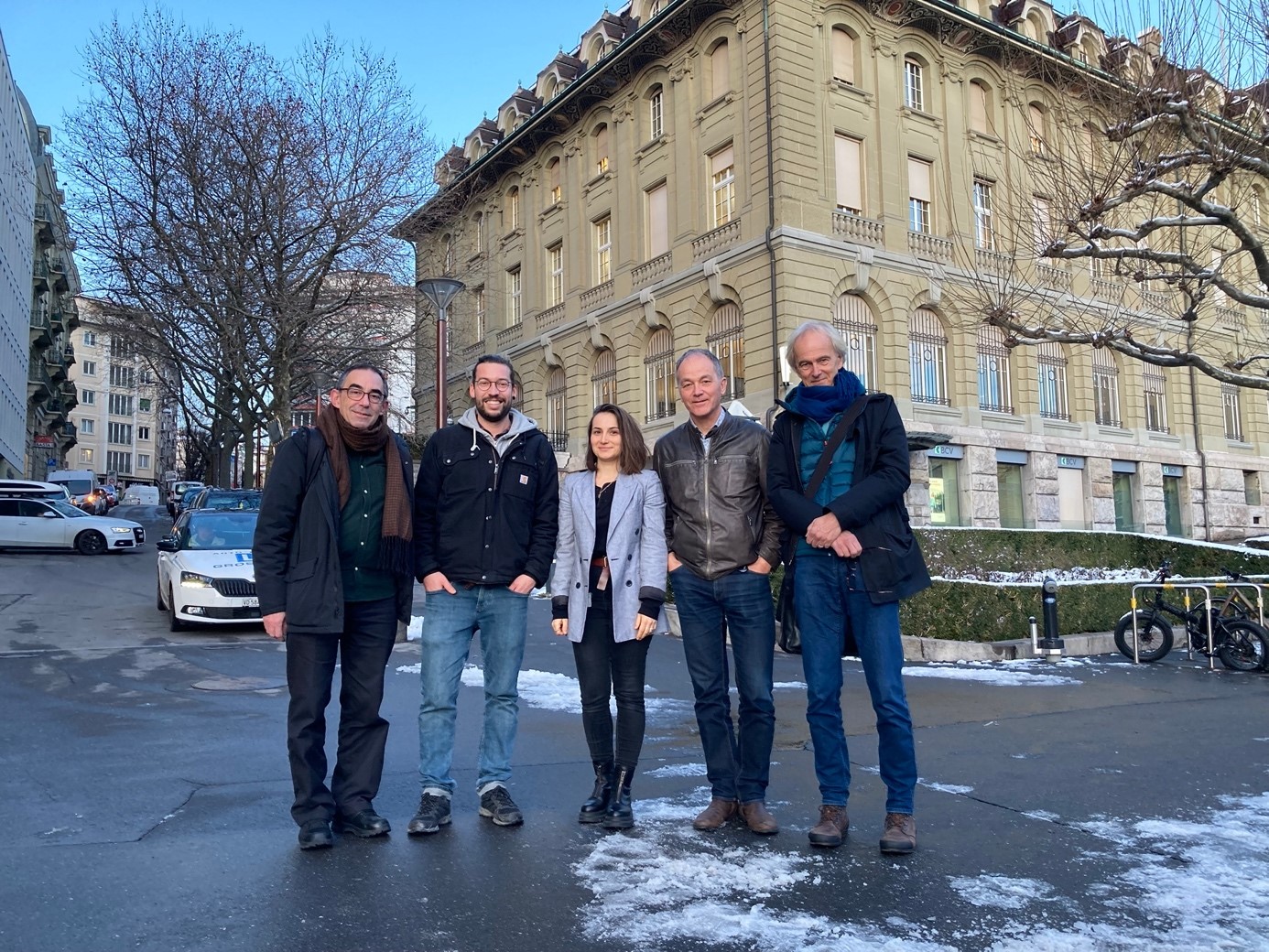Urban remediation in early psychosis: a living lab to emplace recovery in the city

© Aurora Ruggeri
Requérant principal :
Prof. Philippe Conus, chef du Service de psychiatrie générale, CHUV / Université de Lausanne.
Partenaire :
Prof. Ola Söderström, Institut de Géographie, Université de Neuchâtel.
Prof. Jérôme Favrod, Institut et haute école de la santé, La Source (HES-SO), Lausanne.
Post-doctorant-e-s :
Dre Lilith Abrahamyan Empson MD, Service de Psychiatrie Générale, CHUV.
Dr. Marc Winz, Institut de Géographie, Université de Neuchâtel.
Doctorante associée :
Aurora Ruggeri, Institut de Géographie, Université de Neuchâtel.
Durée : 3 ans, dès mars 2023
Budget : 562'000 CHF
Financement : Fonds national suisse de la recherche scientifique (FNS)
After a first fruitful collaboration with the General Psychiatry Service of the CHUV, the Institute of Geography is pursuing its interdisciplinary research on urban mental health through a new project.
The Swiss National Science Foundation (SNSF)-funded project Urban remediation in early psychosis: a living lab to emplace recovery in the city aims to develop a more mental health-friendly city, and more specifically, a city capable of promoting the recovery of people living with a diagnosis of psychosis, in collaboration with patients, peer practitioners, psychiatrists, nurses, psychologists, civil society actors, the municipality of Lausanne and geographers.
The project’s general hypothesis is that designing a mental health friendly urban milieu is a central factor for recovery from psychosis. Thus, this research project’s overarching aim is to identify the key elements of an ‘urban recovery milieu for psychosis’ in order to foster it in one neighbourhood of Lausanne and then scale it up to the level of the entire city. The project’s key research question is therefore: How can an urban recovery milieu for psychosis be fostered?
To carry out this project, we are setting up a living lab in urban mental health in Lausanne. Living labs are similar to quasi-experimental approaches and are characterised by user participation and co-creation. They generally include three or four iterative and reflexive phases, including exploration, co-creation, experimentation and scaling up. Our research builds on these stages, to think, design and promote a healthier city, through an innovative strategy, designed and carried out jointly with the above-mentioned partners.
This project starts with a detailed mapping of the city of Lausanne, of its resources and barriers to recovery. It continues with the co-development and implementation of urban interventions aimed at minimising these barriers, facilitating access to resources and developing social relations of care in a pilot neighbourhood. Finally, it aims to lead to a mental health plan for the city of Lausanne.


